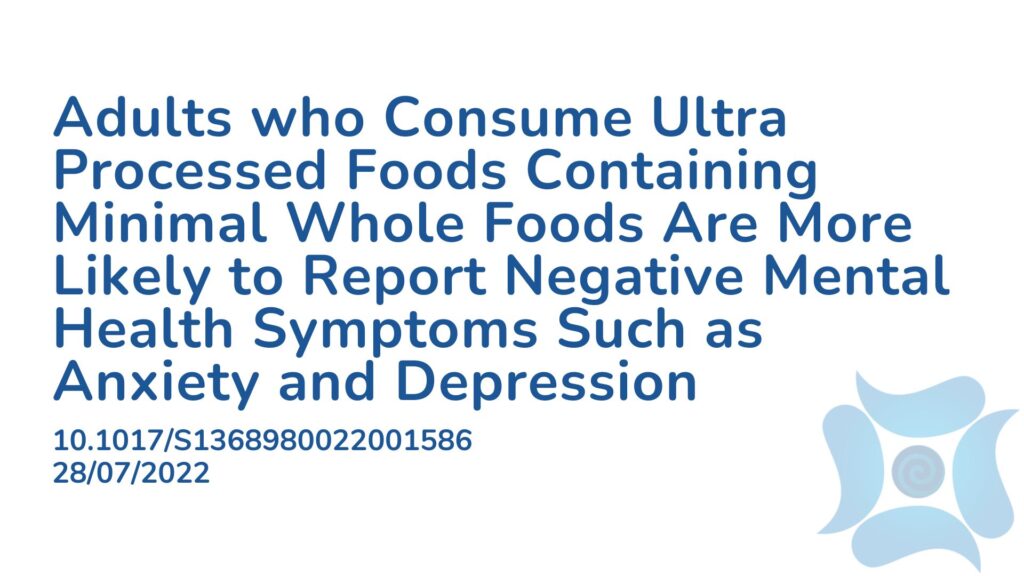Summary: Research has shown that diets that include minimal essential vitamins and minerals, have a high glycaemic index or added sugar intake may negatively influence mental health, yet there is scarce evidence on the impact of ultra-processed food (UPF) and mental health outcomes. The aim of this study was to assess whether individuals who consume higher amounts UPF report more negative mental health symptoms. In this study, UPF is defined as industrial formulations of food such as processed oils, fats and sugars that contain minimal whole foods and unnatural colouring, chemical additives and emulsifiers. Among the 10,359 participants, risk of each outcome measure (number of days feeling mentally unwell, anxious or depressed) increased as consumption of UPF increased. These results add to a growing body of evidence supporting that UPF contributes negatively to mental health. Since UPF makes up the majority of calorie consumption for most western countries, this data is extremely significant to consider for recommendations within clinical practise and overall public health.
Abstract:
Objective: To explore whether individuals who consume higher amounts of ultra-processed food (UPF) have more adverse mental health symptoms. Design: Using a cross-sectional design, we measured the consumption of UPF as a percentage of total energy intake in kilo-calories using the NOVA food classification system. We explored whether individuals who consume higher amounts of UPF were more likely to report mild depression, more mentally unhealthy days and more anxious days per month using multivariable analyses adjusting for potential confounding variables. Setting: Representative sample from the United States National Health and Nutrition Examination Survey between 2007 and 2012. Participants: 10 359 adults aged 18+ without a history of cocaine, methamphetamine or heroin use. Results: After adjusting for covariates, individuals with the highest level of UPF consumption were significantly more likely to report at least mild depression (OR: 1·81; 95 % CI1·09, 3·02), more mentally unhealthy (risk ratio (RR): 1·22; 95 % CI 1·18, 1·25) and more anxious days per month (RR: 1·19; 95 % CI 1·16, 1·23). They were also significantly less likely to report zero mentally unhealthy (OR: 0·60; 95 % CI 0·41, 0·88) or anxious days (OR: 0·65; 95 % CI 0·47, 0·90) Conclusions: Individuals reporting higher intakes of UPF were significantly more likely to report mild depression, more mentally unhealthy and more anxious days and less likely to report zero mentally unhealthy or anxious days. These data add important information to a growing body of evidence concerning the potential adverse effects of UPF consumption on mental health.
Article Publication Date: 28/07/2022
DOI: 10.1017/S1368980022001586



